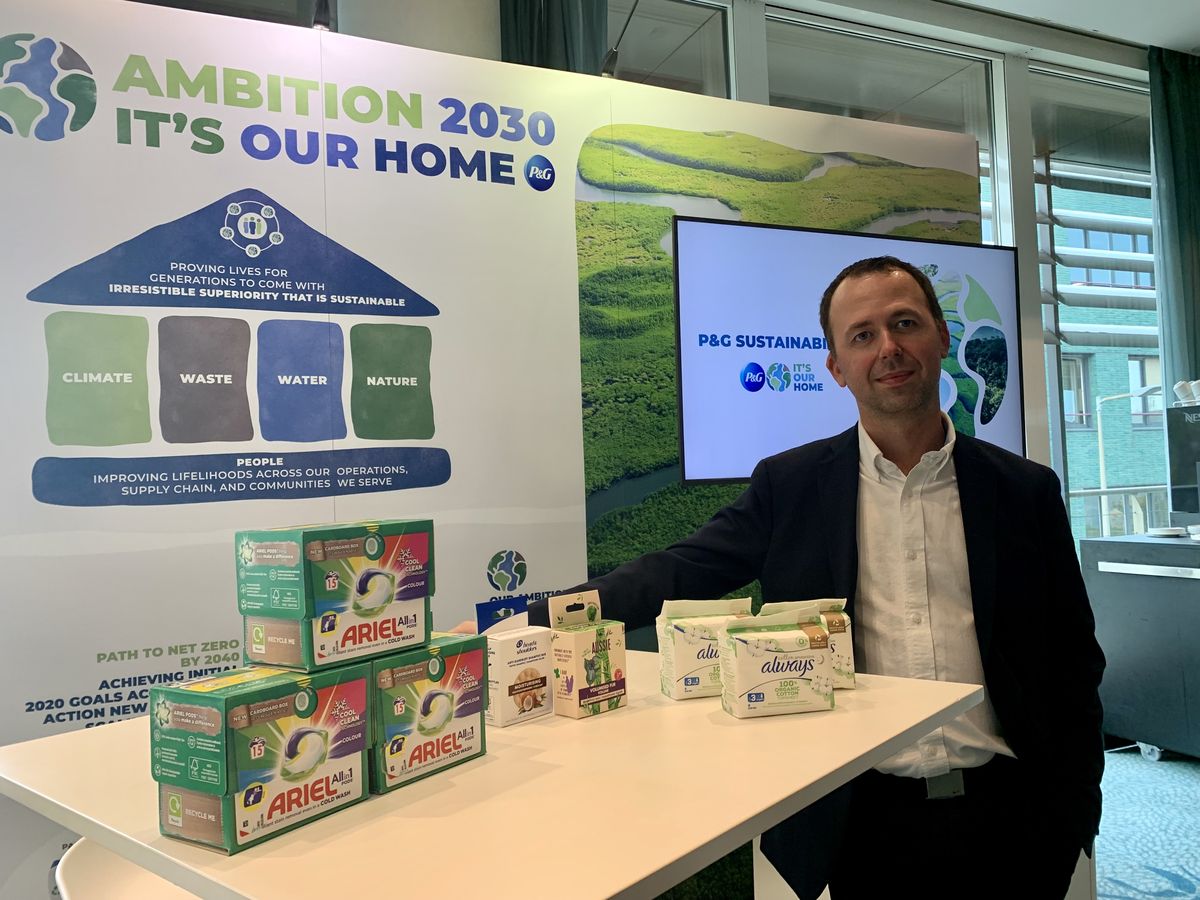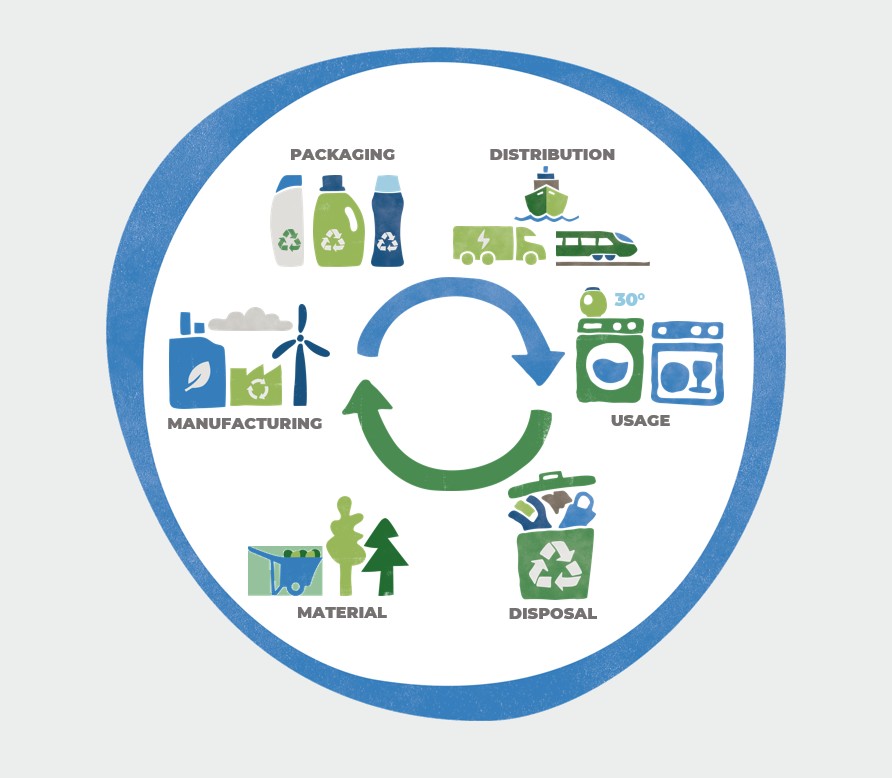After speaking at this year’s Sustainable Retail Summit, Guillaume Lebert, P&G Sustainability Director explains why superior performing products, that are environmentally sustainable is the winning formula that’s irresistible for consumer choices.
At P&G we have a clear mantra: the consumer is our boss. Their needs are constantly evolving along with the changing environment; therefore, we must do the same and deliver through action. This sentiment was echoed throughout the first in-person Sustainable Retail Summit since the pandemic.

However, one thing we must always account for when we’re innovating, are people’s habits and behaviours. Often, when people use everyday products, they approach these with the tried and tested method, without questioning its impact. Yet, our approach to a product’s environmental impact which is based on Life Cycle assessment reveals that for most of our products the carbon footprint is generated during the “in-use” phase at home. Our challenge lies in changing this habit, especially when 65%* of people say they want to save energy in the home.

By combining the benefits of environmental impact whilst producing brilliant results, we’re creating superior formulas that are designed to clean, delight, and meet the wider needs of our consumers which we know are important to them.
In addition, Ariel continues its ongoing mission of offering outstanding cleaning power and freshness. Its new PODS® are designed for outstanding clean even in cold water. Given that nearly 60% of laundry’s carbon footprint comes from the in-use phase, due to heating the water, making a simple switch to turn down wash temperature can help reduce a household’s environmental impact. From reducing washing temperature from 60 °C to 30 °C, it means up to 60% less electricity per cycle, equating to lower monthly electricity bills for many. ***
As we have talked at SRS, we all have a role to play, especially as more than 76% of consumers wants brands to help them understand what to do to live more sustainably. One of the most direct influences we have is to ensure the products we’re making for people meets these criteria.
We’ve been developing new and revolutionary designs as we continue efforts to recycle, reduce and reuse, and we recognise the need to streamline and reduce waste. To give a very recent example, Always launches a new fully recyclable paper packaging innovation for its Always Cotton Protection Pad range. Two years in the making, this beautifully designed pack is lightweight and robust, yet easily recycled in the European paper waste stream – a first for the brand.
The launch comes as part of the brand’s ongoing commitments to offer more sustainable solutions to eliminate packaging waste through recyclable packaging and incorporating 50% renewable or recycled materials by 2025. As a brand, Always believes it is becoming increasingly important for more transparency around the materials used to package essential goods, such as period protection, to help encourage recycling rates to be increased across Europe.
Our aim is to create products that make an impact for people at home through its superiority whilst reducing our environmental footprint. We’re always looking towards science to support our choice when it comes to approaching alternative materials. The last few days at the SRS have provided a lot of stimulating discussions and fresh takeaways on the next steps we need to explore as a company, industry, and society. We must continue putting science and innovation first to provide the very best product experience for people, but doing so in a way that can only benefit the planet.
* One Poll online survey on behalf of P&G, June 2022, 1000 dishwasher users aged 25-55, UK
** Short cycle defined as ≤ 55min.
*** Ariel uses Life Cycle Assessment (LCA) to better understand the end-to-end journey of laundry detergent and measure the environmental footprint it has on the planet at every stage. LCA shows that on average, 60% of the environmental footprint of laundry comes from the in use phase which includes the electricity used to heat the water*. Consequently, lowering the wash temperature is the single most important thing you can do to reduce your laundry’s environmental impact.
**** Washing machine energy consumption at 30C vs 60C, normal cycle.
